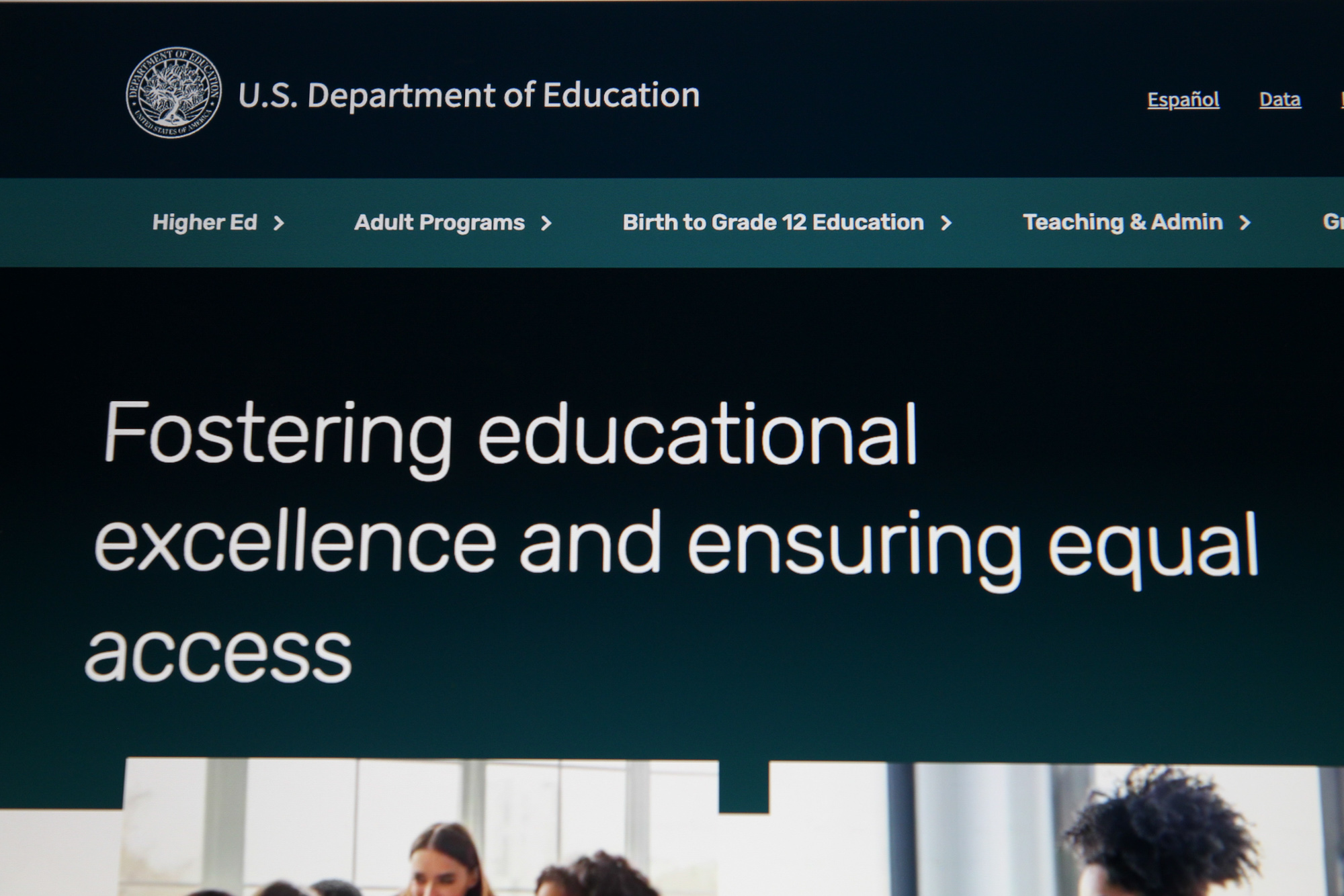Boston University students and faculty are split over impacts the University community may face if an executive order to dismantle the United States Department of Education is passed.

President Donald Trump is preparing an executive order attempting to close the Education Department, fulfilling a promise made throughout his 2024 presidential campaign. Closing down a federal agency requires the approval of Congress and teachers’ unions.
BU Spokesperson Colin Riley said the University is reviewing and assessing changes that need to be made to comply with federal law as executive orders and new policy announcements arise.
Sophomore Philip Wohltorf, a member of BU College Republicans, said he understands the reasoning behind Trump’s executive order since education was managed at the state and local levels for most of U.S. history, as the Education Department was established in 1979.
“When states had more control over education in the 1950s and 60s, American students were among the highest achievers in literacy and math,” Wohltorf said. “Since then, our rankings have fallen drastically.”
In 1950, the estimated national and Massachusetts illiteracy rates were 3.2% and 2.8%, respectively. In 2024, the illiteracy rates were 21% nationally and 17.3% in Massachusetts.
“If we give the education back to the states, are we definitely going to be better than before? I don’t know,” Wohltorf said. “But allowing communities to shape education according to the needs and values of the local communities would encourage competition and innovation, maybe leading to better educational outcomes.”
The Education Department oversees loan programs, administers Pell Grants, provides funding for low-income students and supports special education programs.
BU senior Nina Gulbransen, president of BU College Democrats, said abolishing federal financial aid programs, which are “already insufficient,” is “targeting low-income students” who otherwise cannot afford the cost of college.
“At a very basic level, it’s going to harm so many low-income children across the country,” Gulbransen said. “It’s going to make college inaccessible for basically everyone who doesn’t have $90,000 a year lying around to send their kids to school.”
Wohltorf said he thinks underlying agencies in the Education Department, such as the Office of Federal Student Aid, will be redistributed to other federal agencies, not dismantled along with the department.
For sophomore Alpha Barry, leader of Young Americans for Freedom at BU, Trump’s push to abolish the Education Department shows promise to detach educational programs from government overreach, which he believes “ruined the education” of American students.
During his presidential campaign, Trump released a video listing his ten principles to achieve great schools. The third promised classrooms would focus on teaching “reading, writing, math, science, arithmetic and other truly useful subjects,” excluding several humanities disciplines.
Barry said Trump does not want to subsidize “nonsense degrees” in fields such as gender and LGBTQ+ studies, which he said students “will not use” in their careers post-graduation. Barry said he thinks Trump wants “the cream of the crop,” which he believes can be achieved by deemphasizing humanities-based programs.
“Why should I have to send my income tax to people who are getting useless degrees?” Barry said. “It’s a waste of taxpayer money. It’s not what I signed up for, and it’s not what American principles are founded on.”
Wohltorf said he understands why Trump, a businessman, would want to focus less on humanities, but that doesn’t mean they will cease to be taught under the pending executive order.
“It’s not like without the Department of Education, English or gender studies or biology won’t exist anymore,” Wohltorf said.
BU is classified as a “private research institution,” meaning federal agencies, including the Education Department, allocate funds to the University for research.
One of the biggest threats BU may face is an escalation of attacks on research funding, said Jonathan Feingold, an associate professor at the BU School of Law.
Feingold worries research faculty members without tenure are “particularly vulnerable to the sort of external, politically motivated attacks that are likely to escalate under the Trump administration.”
Gulbransen is in the BU Bachelor-to-Master’s program and is doing research in social science. She said the Trump administration is less likely to allocate research grants to projects including terms like “woman,” “female” or “discrimination bias.”
“It’s up to the University to shoulder that cost if the federal government won’t fund it,” Gulbransen said. “That will obviously decrease the amount of research that’s going to be going into these important issues that we were seemingly making some progress on at a very minor level.”
Gulbransen said if humanities research programs are underfunded, it will “de-incentivize people from pursuing” research in those fields.
“That’s a very clear message to our thinkers of today, to our researchers, to our scientists, to not push for more justice in not only science, but in social science,” Gulbransen said. “I would hope that BU wouldn’t divest from its investments in those programs as a research institution, but obviously, it’s going to affect them.”
Feingold said defunding the Education Department could lead to understaffing issues and a lack of manpower crucial to enforce legal protections for students.
“Even if the Trump administration were not to attempt to change the formal protections that students have,” Feingold said, “there might just not be the humans that are necessary to carry out investigations and ensure that institutions [and] universities are protecting the civil rights of their students.”


















































































































